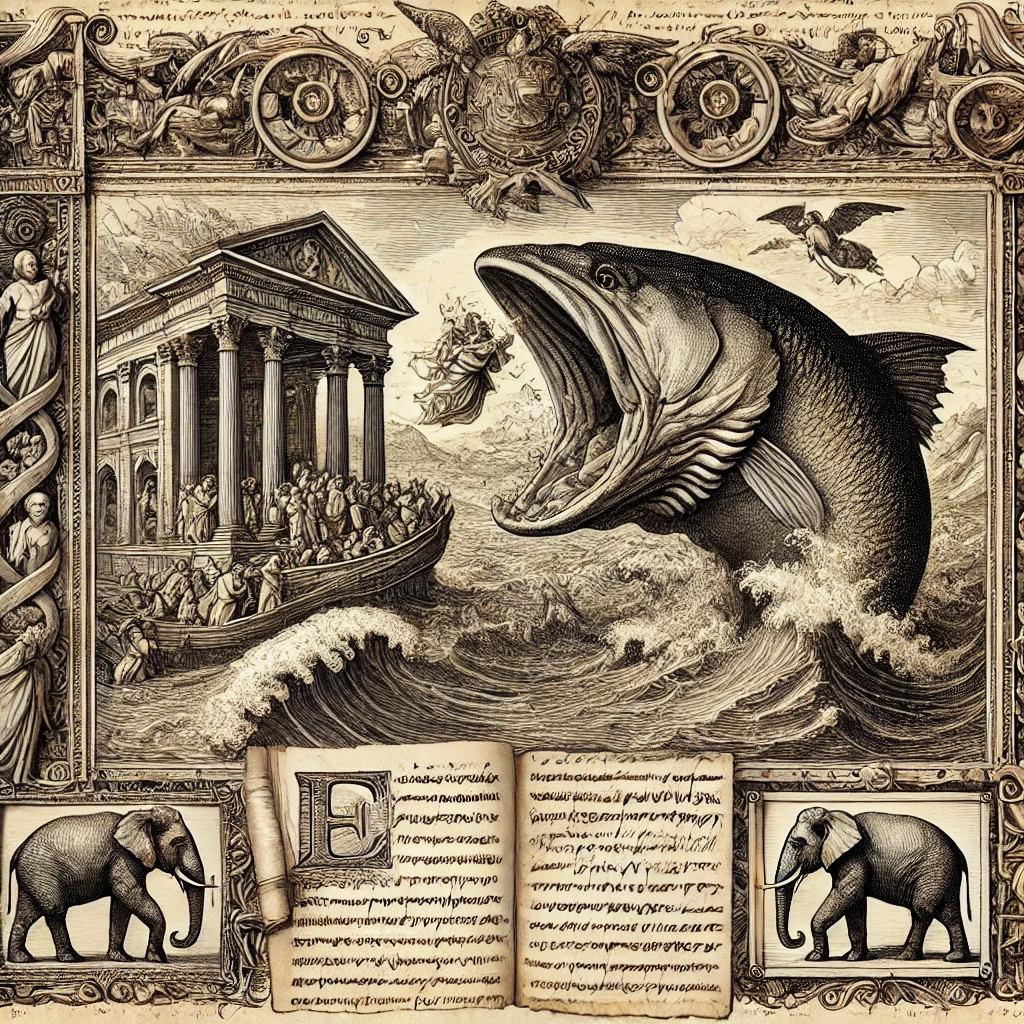في عصر قديم، عاشَتْ أسطورة موسى وشهيرة الشهيرة، الجميلة والأنيقة. لم تكن حياته مجرد قصة عادية، بل كانت كالحكايات الساحرة التي تجذب القلوب والعقول. ولد لهما ابن، سماه موسى، كما ورد في السجلات القديمة. ولكن هل كانت نهاية القصة؟ لا، بالطبع لا. لأن في عالم الخيال والحكايات، كل شيء ممكن، حتى السحر والمفاجآت الغير متوقعة. فلنتابع القصة ونرى ما الذي يخبئه المستقبل لموسى ولسعيه إلى السعادة في عالم سحري وخيالي
¡We🔥Come!
⁎⁎⁎ ⁎⁎⁎ X ⁎⁎⁎ ⁎⁎⁎
*** *** Y *** ***
Click the image for a quick introduction.
ВВЕДЕНИЕ
École de Cybernétique et de Sorcellerie de Neotopia
Chambre des Systèmes de Réception
Directeur : Professeur Septimus Arcane
Hôtesse des Admissions : Mme Nebula Orion
À Mademoiselle Noura,
Ta sagesse guide, ta beauté réchauffe,
Les cœurs les plus gelés, les âmes qui s’étouffent.
Je suis un magicien, un vagabond, un rêveur,
Et je t’offre mes vers comme une humble faveur.
"Mais d’où viens-tu?" — tu me demanderas,
Je suis du Royaume des Neiges qui tout récemment
A proclamé son indépendance,
Juré, craché, c’est pas un mensonge, c’est franc!
Non, ce n’est pas moi qui l’ai déclaré,
C’est mon frère jumeau, si savant et rusé,
Un brillant programmeur, tout à fait sérieux,
Mais moi, je suis un saltimbanque merveilleux!
Je fais des spectacles, des jeux pour les grands,
Comme un artiste de rue qui charme les enfants,
Mais les enfants ne voient jamais mon numéro,
Parce que je suis magicien, c’est ainsi que ça va, mon vieux!
Mes spectacles, vois-tu, ne sont visibles que pour ceux
Qui croient en la magie, les cœurs vraiment heureux.
Et toi, chère Reine, dis-moi, je te prie,
Crois-tu, toi aussi, en la douce magie?
⁎⁎⁎ ⁎⁎⁎ wWw ⁎⁎⁎ ⁎⁎⁎

Affiche du film : "Le Retour du Renard"
Une comédie pleine d’ironie, d’aventure et de leçons improbables sur la Seconde Guerre mondiale !
Dans un tour de magie inattendu, Samuel le Rusé, un vieil homme juif aux ruses inépuisables, retourne dans le passé, au cœur d’un Amsterdam en flammes. Sa mission ? Sauver Anne Frank, l’adolescente réfugiée dans un sous-sol sombre, menacée par la fureur de l’Histoire. Mais ce sous-sol cache un secret inattendu : un portail mystérieux vers le futur… et le moderne internet !
Samuel le Rusé enseigne à Anne l’art de maîtriser ChatGPT, une arme aussi redoutable qu’inattendue pour combattre les nazis et réécrire le cours de l’Histoire. Entre deux discussions philosophiques et des leçons d’informatique, ils découvrent une vérité surprenante : certaines graines de l'humanité, ces talents génétiques rares, ne peuvent éclore que dans des conditions d’absence totale de compétition. Samuel fait une métaphore audacieuse : « Les carottes prospèrent bien seules, mais la fraise des bois mérite aussi sa place sous le soleil, n’est-ce pas ? »
Préparez-vous à une aventure hilarante, poignante et pleine de rebondissements !
Два еврейских интеллигента, Исаак и Давид, неспешно шли по улице, типичной для немецкого города начала 1930-х годов. Оба придерживались делового стиля одежды, который был привычен для евреев среднего класса того времени. Исаак был одет в серый шерстяной костюм с узором «гусиная лапка», на нём был аккуратный галстук в полоску, застёгнутая на все пуговицы белая рубашка, а на плечи наброшен длинный плащ с бархатным воротником. Давид был в тёмно-синем костюме, его фетровая шляпа слегка сдвинута на бок, придавая образу небольшую долю непринуждённости. В руках он держал трость — не для поддержки, а как элемент стиля. Их элегантный внешний вид контрастировал с грубым, оскорбительным граффити, которое они увидели на витрине.
Оба мужчины замерли, глядя на звезду Давида, нарисованную красной краской, и огромные буквы "Juden" на немецком языке.
Исаак, высокий и худощавый, слегка нахмурился, и, переведя взгляд на собеседника, задумчиво произнёс:
— Как вы думаете, коллега, работает ли философия Мартина Бубера в условиях, когда оппонент отказывается вступать в диалог и продолжает настаивать на своей философии в вопросах культуры и морали?
Давид, глубоко вздохнув, отвёл взгляд от витрины. В его голове начался сложный мыслительный процесс, как будто он пытался найти в своих ментальных лабиринтах "еврейскую комнату" — ту самую, где хранились книги и личные размышления о Бубере. Он когда-то сидел там, в этой комнате своего разума, и перечитывал Бубера, пытаясь упростить идеи философа для своей 12-летней дочери Рахели.
"Диалог… Взаимоотношение Я и Ты, искреннее общение с миром... Как же просто это звучит на бумаге, и как сложно в реальности," — подумал он. Но как это объяснить ребёнку, который ещё не столкнулся с тем, что мир может отказать в диалоге, просто отвернувшись?
Его разум метался между страницами прочитанных книг, пытаясь собрать воедино всё, что могло бы дать ответ на этот вопрос. Вопрос, который становился всё более личным в условиях нарастающей опасности.
— К сожалению, коллега, — начал он после небольшой паузы, — философия, в отличие от точных наук, не развивается по принципу рекурсии. Философские идеи больше похожи на золотые семена новых миров. Великие мыслители, они как волшебные дубы, которые разбрасывают свои идеи, словно желуди, надеясь, что хотя бы один из них найдёт свою почву и поднимется к солнцу. И тогда, если повезёт, этот желудь станет новой родиной для бесконечного числа новых идей. Это не математическая рекурсия, а что-то более сложное и глубинное. Но чтобы этот процесс имел смысл, нужно одно: диалог.
Он бросил быстрый взгляд на Исаака, который задумчиво кивал, но глаза его продолжали блуждать по надписям на стекле.
— Да, коллега, что и говорить — рекурсия это скорее алгоритм бога, — продолжил Давид, его тон оставался ровным и спокойным. — Теорию Гегеля проще понять, если научиться чувствовать рекурсию в каждом аспекте жизни, в каждом процессе, способном к самовоспроизводству и адаптации. Но философия требует больше… Она требует не бесконечного повторения идей, а их осмысления, как бы парадоксально это ни звучало.
Исаак ухмыльнулся:
— Воистину рекурсивные алгоритмы самые прогрессивные. Правда, никто еще не проверял это на практике. Впрочем, наш мир созрел до точки, когда работы философов найдут поддержку в других странах. Например, в Объединенных Штатах Америки, куда недавно эвакуировался один небезызвестный гуманист…
Давид вздохнул:
— Что ж, будем надеяться, что у него всё получится.
Они замолчали, глядя на витрину. Что-то в этой картине, в этих простых, но зловещих надписях, наводило на мысль, что это не просто акт хулиганства. Это был симптом чего-то более глубокого — вируса, который зарождался в обществе и который вскоре станет чумой, перед которой философия окажется бессильной. Этот вирус поставит перед миром новые, нерешённые вопросы — о международных отношениях, о будущем экономики, о том, куда движется человечество в условиях стремительного технологического прогресса.
Вопросы, ответы на которые предстояло искать будущим поколениям.
Par une matinée douce et fraîche de Paris, Théodore Herzl, impeccablement vêtu, s'installe à une petite table en terrasse, sous un élégant auvent de velours. Son costume, taillé sur mesure, est d'un gris foncé avec de subtiles rayures verticales, rehaussé d'une pochette en soie blanche glissée dans la poche de son veston. Un long manteau noir en laine, orné de boutons dorés, repose sur le dossier de la chaise, et à ses pieds un élégant parapluie à manche en bois. À son poignet brille une montre de poche en or, dont la chaîne pend discrètement, un accessoire essentiel pour un homme de sa stature. Sa mise est celle d’un homme qui souhaite impressionner les élites parisiennes — mais avec une certaine retenue.
Herzl savoure un café noir, soigneusement préparé, accompagné de croissants feuilletés et croustillants, tout juste sortis du four, encore tièdes. Il plonge ses yeux dans les pages du journal Le Monde, où un article en première page capte son attention : Jules Védrines s’est posé sur le toit des Galeries Lafayette. Une lueur d’admiration traverse son visage, et une fine esquisse de sourire illumine ses traits habituellement graves.
Ce sourire ne passe pas inaperçu. Un vieil homme, assis à la table voisine, le remarque et, visiblement agacé par cet élan d’enthousiasme, se tourne vers Herzl. C’est un Parisien de la vieille école, habillé dans un style classique, avec un chapeau melon soigneusement posé sur la tête et une canne posée près de lui.
— Ces inventions, ces innovations! — lance le vieil homme avec une note d’irritation dans la voix. — Savez-vous quel est le premier usage de toutes ces « merveilles » modernes? C’est pour la guerre! Toujours la guerre. Comme si les habitants de l’Élysée avaient besoin de cela pour enfin se rappeler que la science et les technologies ont une valeur!
Herzl hoche légèrement la tête, encourageant le vieillard à poursuivre. Il sait qu’un tel interlocuteur, un habitué de ces lieux, probablement bien informé sur tous les détails de la vie du café, des serveurs jusqu'à leurs lieux de résidence, appréciera d’être entendu. Il garde une attitude de diplomate, feignant un intérêt sincère, tout en essayant de capter les fils de la conversation.
— Avez-vous entendu parler de Bourbaki? — poursuit le Parisien, ajustant son ton pour revenir à une apparente courtoisie.
Herzl pose doucement sa tasse de café. Une vague de confusion traverse son esprit, il cherche frénétiquement dans les corridors de sa mémoire, parcourant mentalement ses rayonnages d’ouvrages. "Bourbaki… Ce n’est pas de la philosophie, donc les étagères du haut ne sont pas la bonne direction. Ce n’est pas non plus de l’art... Mais la littérature classique? Non… Peut-être quelque part au milieu?"
Un moment de panique intérieur saisit Herzl. Il observe sa tasse de café, essayant de gagner quelques précieuses secondes. Puis, soudainement, il lève les yeux vers le serveur qui s’approche, son sourire bienveillant et ses boucles argentées dégageant une chaleur familière. Herzl, dans un éclair de mémoire, se rappelle d’une anecdote de son enfance, où sa grand-mère lui expliquait que le nombre 29 ne figure pas dans la table de multiplication. Un détail aussi anodin qu’instructif, et pourtant porteur de sagesse.
Reprenant confiance, il se tourne vers le vieillard et, avec un sourire presque imperceptible, déclare sans l’ombre d’un accent :
— Les enfants sont les fleurs de la vie. Quel trésor inestimable de pouvoir partager avec eux les joies et les peines du monde. Pardonnez-moi, je m’égare... Je suis Herzl, Théodore, je viens du Proche-Orient. Nous avions des cours de mathématiques là-bas, et je suis, en effet, quelque peu familier avec cette histoire de Bourbaki.
Le vieil homme, surpris par la courtoisie et l’élégance de la réponse, se tait un instant, évaluant son interlocuteur d’un œil plus attentif.
— Enchanté, monsieur Herzl. — Sa voix s’adoucit. — Moi, c’est Charles, tout simplement Charles.
Un instant de silence s’installe, mais c’est un silence empli de respect mutuel. Le hasard semblait avoir conduit ces deux hommes à cette rencontre, dans ce café parisien, mais il était évident qu’une force plus grande jouait en coulisses. Le destin, mystérieux et magnifique, avait une manière bien particulière de réunir ceux qui savaient reconnaître l’importance d’être au bon endroit, au bon moment.
— Ladies and gentlemen, esteemed senators, members of this great assembly,
I stand before you today not as a man of mere dreams, but as a man with a plan. And if, many years from now, you hear someone on the streets of America declare, "I have a dream" — do not trust such a person. You see, I, like a true British pirate (he pauses to gauge their reaction to his joke), grew up reading tales of British pirates. Though, in truth, I am not from the seas of the West, but from the deserts of the East — a sort of Wild West in reverse. Out there, many pirates are trying to conquer the desert, with mixed results.
But before we dive into the matter at hand, I would like, as much as time allows, to share with you a secret code, a phrase passed from generation to generation through a portal of time: "I have a dream."
This phrase, you see, is no mere sentiment. It is, in fact, a spell of sorts — a powerful incantation that future generations of your great nation will attempt to use. But it will not be enough. A dream alone, however lofty, is not sufficient. You must have a plan — a solid, well-thought-out plan. Consider Constantine the Great. He had such a plan, and it shaped the course of human history for generations to come.
I, too, have such a plan.
The room falls silent, the air thick with anticipation. Every senator present has a red folder before them, carefully prepared by the CIA. These folders are not merely biographies of this peculiar guest from the "Wild East," but detailed scientific forecasts of potential outcomes depending on which plan is proposed to deal with the so-called camel pirates of the Wild East.
According to the CIA's analysis, Herzl has a proverbial deck of twelve tarot cards hidden in his pocket. Each card, if metaphorically drawn at the right moment, could unleash a cognitive virus of unimaginable power. In layman's terms, the memo explains that the Jews have mastered the art of creating recursive memes. These memes spread virally within one social group but carry a secret message that reaches another group, who will, in turn, dissect and analyze it. Eventually, this meme reaches the Oval Office, forcing the President of the United States to act — a legal hack of the Pentagon, so to speak.
Returning from this brief digression, we return to Herzl’s speech.
— A dream only becomes reality when elevated to the highest level of scientific progress! In this case, the matter at hand lies within the realm of social sciences.
For example, scientists in the United States have recently taken to studying the stickers found on the streets of San Francisco. At first glance, they seem like nothing more than adolescent clutter, perhaps even graffiti. But, in fact, this is what, in our Mathematical Institute of the 12th Apostle of Jesus Christ, we refer to as "microsociology." By using Cauchy’s theorem, we can decipher the true undercurrents of a nation’s sentiment — just as we can interpret the writings in a Russian elevator to understand what is truly happening in the country beneath the veil of stochastic error.
Herzl pauses, knowing that this seemingly tangential observation will resonate deeply with a nation obsessed with analysis, trends, and data.
Théodore Herzl enters the grand hall of the British Parliament, exuding the same air of gravitas as Winston Churchill once did, but with a spark of wit and diplomatic flair. The members of Parliament, accustomed to stern speeches on policy, sense that this might be different.
He begins with a playful yet respectful nod to the British traditions:
"My lords, ladies, and gentlemen of this most noble Parliament, let me begin by saying what a privilege it is to speak in a chamber where not even the Atlantic winds can carry away the greatness of this nation. But, of course, you knew that already, didn't you? After all, the Royal Navy has been ensuring that for centuries."
(A ripple of laughter spreads across the hall)
Herzl leans into his next joke, clearly comfortable with the audience:
"Now, I must say, I’ve been studying the habits of our American cousins across the pond. Quite curious, really. Over there, every four years, their 'Mr. President' — bless his heart — must pack up his bags and leave, all because a piece of paper somewhere in Washington, D.C., dictates so. They call it the Constitution. Here, in Free Britain, we have no need for such trivialities, because Her Majesty doesn’t need to leave the throne, ever! No paper or pomp could force that."
(The room erupts in laughter, with several members nodding in agreement)
Herzl gives them just enough time to relish the jest before shifting gears, ready to tackle the heart of the matter:
"Now, as many of you are aware, my recent book... well, I suppose you've all heard of it by now. In it, I’ve tried my hand at blending the ideas of German philosophers, hoping to strike a new balance—a kind of diplomatic humour, if you will—that mirrors the shifting balance of power among kingdoms and empires. After all, not everyone takes to our London tea as enthusiastically as we might hope!"
(Smirks and chuckles ripple through the crowd)
Herzl’s tone suddenly sharpens, the atmosphere turning more serious. He leans forward, his voice rising in pitch, capturing the full attention of the hall:
"But, ladies and gentlemen, look no further than the German newspapers! You’ll find the Star of David plastered across their front pages! This is not a dream we are dealing with — this is the future! A future that for some has already become the past!"
(The tension in the room rises palpably, as whispers fill the chamber. Members shift in their seats, some staring pointedly across the aisle at their opponents.)
The room feels on the brink of eruption. The so-called "Three-State Solution" has been the subject of furious debate, and Herzl’s words, laced with urgency, have struck a nerve. Both sides of the political spectrum are visibly bracing for a confrontation.
But Herzl knows that his mission is complete. His message has been delivered. He adjusts his coat with a deft, deliberate motion, and as he strides toward the exit, he pays no heed to the murmurs of outrage — curses from the red benches, accusations from the blue.
He doesn’t need to look back, for Herzl knows all too well: the spark has been lit. The debate is no longer his to fuel; it will rage on, as only it can, in this ancient house of democracy.




